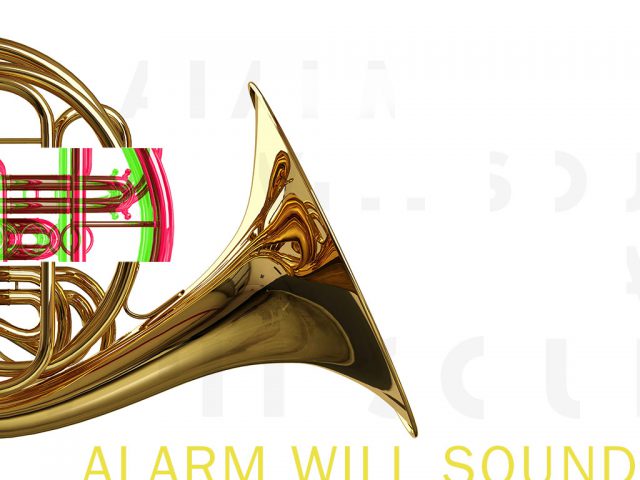
Due to some scheduling conflicts, I recently found myself in the very unusual position of being in the audience at an Alarm Will Sound concert, instead of performing in it. The opportunity to observe the way my colleagues interact with each other, with composers, and with audiences was fascinating, if slightly disorienting. The band was in Columbia, Missouri for our annual residency at the Mizzou Summer New Music Festival. The concert I had to sit out was the concluding concert of the Festival: eight world premieres of new works written for AWS by the composer-fellows of the festival.
One of the most striking things I noticed about the festival this summer is that the preparation of eight world premieres (a total of about 80 minutes worth of music), was a remarkably smooth process. As usual, the works by these eight young composers were all very different, and each had a unique voice and way of approaching writing for our ensemble. We all had our different opinions about which piece we liked the best, or which piece was more memorable or musically compelling, but there was one thing that we definitely agreed on: this year’s group of composers had perhaps the best command of notation that we’ve seen so far (good job, guys!). In our years of working with student composers, emerging composers, and even some famous established composers (who shall remain nameless), the members of Alarm Will Sound have seen a LOT of bad notation, and we have come to really appreciate the multifaceted value of good notation in new music.
When we work with young composers in a residency situation, the members of AWS usually have a talkback session where we can offer feedback to the composers about what works well and what doesn’t in their pieces; these discussions almost invariably center on notational issues. Our managing director Gavin likes to start these discussions by reminding the composers that in the music world, time is money in a real and very tangible sense. Every minute we spend in rehearsal trying to decipher what an unfamiliar notation means, figuring out where fermatas are in a bar with a whole rest, or getting lost in 78 measures of rest with no rehearsal letters or cues, is a minute that delays our getting to the actual music itself. The MSNMF offers a luxurious amount of rehearsal time for the fellows’ pieces, but that is a very unusual situation. An orchestral premiere may receive only a cursory run-through before a performance, and many festivals offer only readings of student composer works. It is very important for any composer to seriously consider how to help the performers get to the music as soon as possible.
So, how does one accomplish this, you ask? Happily, while I was sitting in the back of the room observing rehearsals at Mizzou, I was able to start collecting some of the most common notational issues that AWS has encountered over the last 10 years of performing new music, along with our recommendations for how to fix them. With the help of all the members of the band, especially Stefan, Alan, and Chris, the results are in and available for all to see: the Alarm Will Sound Style Guide! Some of the guidelines in this document are specific to AWS – the way we in particular like things to look – but most of them are general recommendations that will help us do exactly what we want to do: get to the music faster! Please feel free to consult and share, and keep an eye on our website for more instrument-specific content soon to come.

